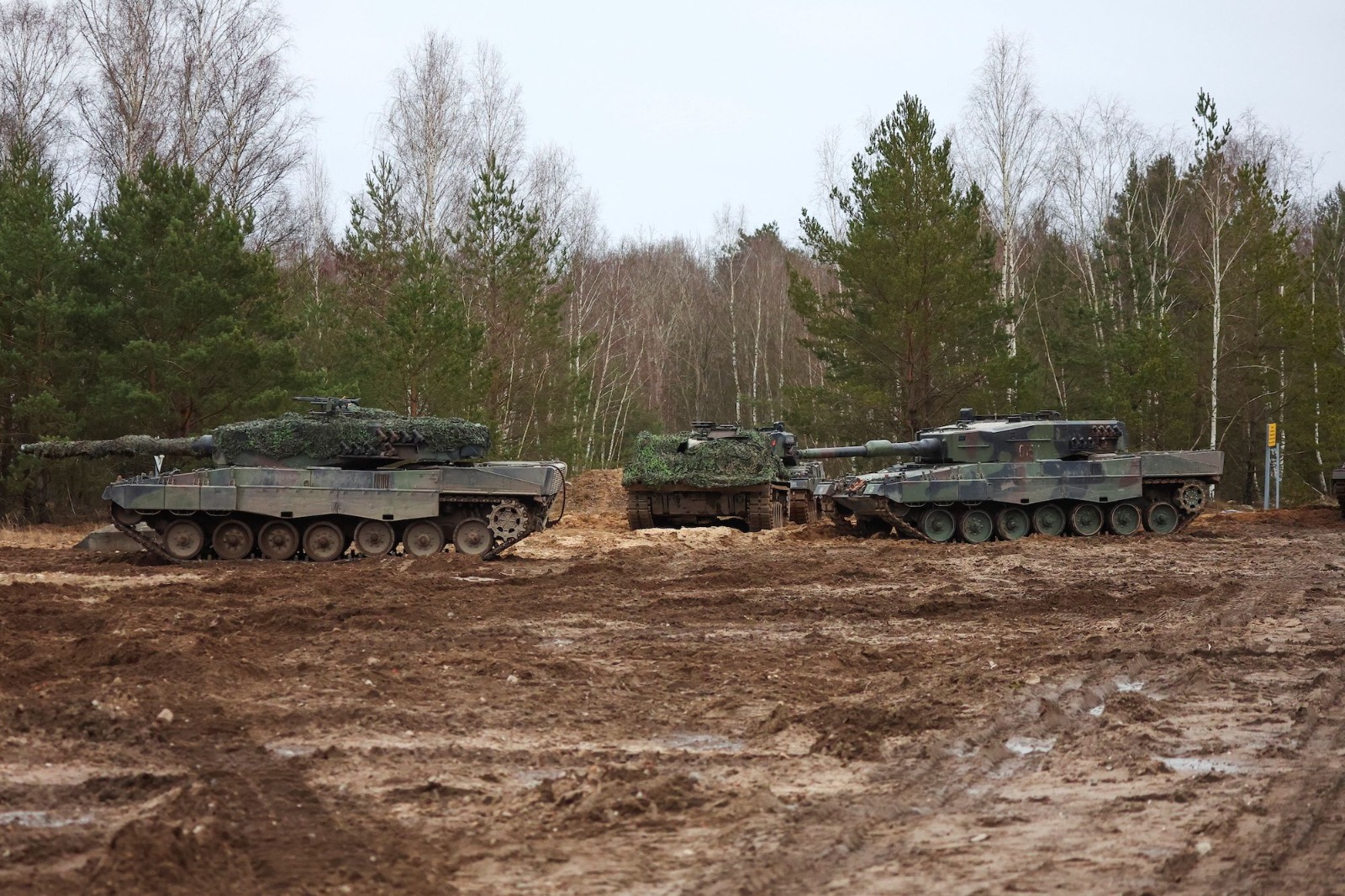Poland, a steadfast ally of Ukraine, has declared an immediate halt to arms transfers to the war-torn nation, citing a pressing need to prioritize its own defense efforts. This decision comes just a day after Ukrainian President Volodymyr Zelenskiy accused Poland of inadvertently aiding Russia by imposing a ban on Ukrainian grain imports, ostensibly to safeguard the interests of Polish farmers.
Polish-Ukrainian Relations Sour Over Grain Row
Since the onset of the Russian invasion in February 2022, Poland has played a pivotal role as one of Kyiv’s primary weapons suppliers and has provided shelter and support to over a million Ukrainian refugees. However, recent days have witnessed a significant deterioration in relations between the two nations, primarily driven by a mounting dispute concerning grain exports.
Poland’s Prime Minister, Mateusz Morawiecki, officially announced the suspension of arms shipments to Ukraine, underlining that his country had shifted its focus towards modernizing its own defense forces. He stated, “We are no longer transferring weapons to Ukraine because we are now arming Poland with more modern weapons.”
Zelenskiy Accuses European Allies of Favoring Russia in Grain Exports
President Zelenskiy used his address to the United Nations General Assembly to accuse certain European nations of indirectly aiding Russia through their stance on grain exports. Russia’s invasion of Ukraine disrupted Black Sea shipping lanes, making the European Union a major transit route and export destination for Ukrainian grain.
In May, the EU implemented import restrictions on grain, limiting them to Bulgaria, Hungary, Poland, Romania, and Slovakia, a move aimed at safeguarding the interests of local farmers who had seen a decline in prices due to the influx of Ukrainian imports. While these measures permitted the continued transit of grain through these countries, it prevented them from being sold in local markets.
However, on Friday, the European Commission announced the end of the import ban, stating that the “market distortions in the five member states bordering Ukraine have disappeared.” In response, Poland, Hungary, and Slovakia promptly declared their intent to defy this decision.
In response to Zelenskiy’s accusations, Poland reacted vehemently by summoning the Ukrainian ambassador and issuing warnings of potential retaliatory actions. Prime Minister Morawiecki emphasized, “I am warning Ukraine’s authorities. Because if they are to escalate the conflict like that, we will add additional products to the ban on imports into Poland. Ukrainian authorities do not understand the degree to which Poland’s farming industry has been destabilized. We are protecting Polish farmers.”
Ukraine Lodges Complaint with WTO as Tensions Rise
The escalating grain dispute has now taken an international turn, with Ukraine announcing its intention to lodge a formal complaint with the World Trade Organization (WTO) regarding Poland’s actions, as well as those of Hungary and Slovakia. A spokesperson for the WTO confirmed Ukraine’s initial step in initiating a trade dispute by filing a complaint with the global trade body.
In response, Poland’s foreign ministry expressed its displeasure, stating that “putting pressure on Poland in multilateral forums or sending complaints to international courts are not appropriate methods to resolve differences between our countries.”
As tensions continue to mount, Kyiv has called upon Warsaw to reconsider its stance on the grain dispute. Ukrainian Foreign Ministry spokesperson Oleg Nikolenko urged restraint, saying, “We urge our Polish friends to put aside their emotions. The Ukrainian side has offered Poland a constructive path to resolve the grain issue.” Nikolenko also noted Kyiv’s displeasure over recent remarks by Polish President Andrzej Duda, who likened Ukraine to a “drowning person” and reminded them of Polish assistance.
Meanwhile, Romania’s Agriculture Minister, Florin Barbu, announced that Bucharest would collaborate with Ukraine over the next 30 days to develop a grain export control plan aimed at protecting Romanian farmers, further emphasizing the complexity and far-reaching consequences of this dispute.















